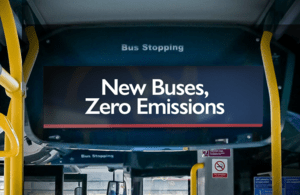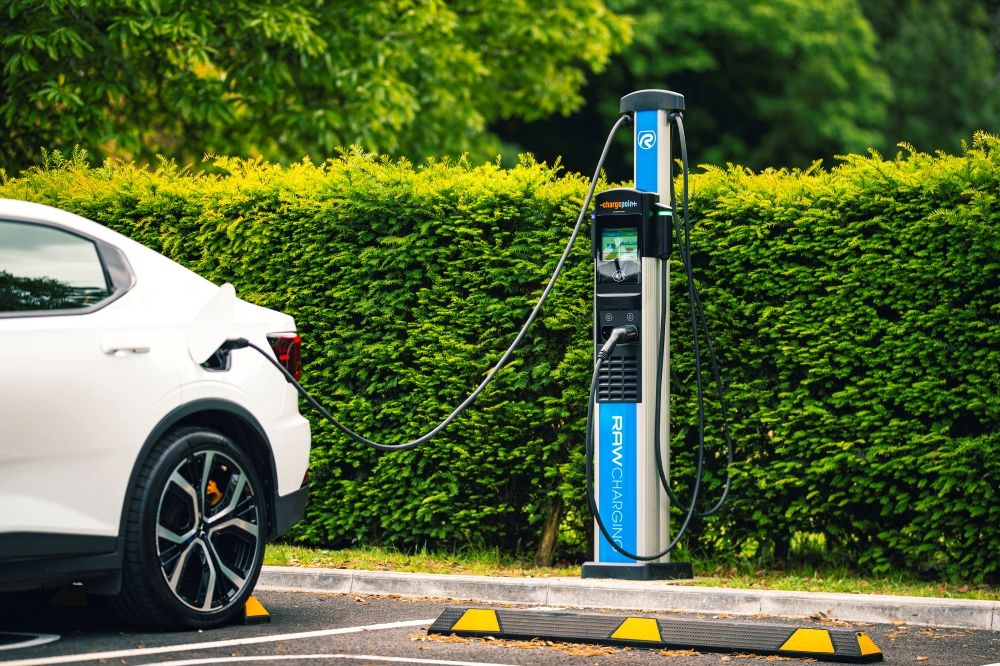Funding up to £129m has been released by the government to assist local authorities in the delivery of zero emission buses (ZEBs).
The new cash pot will focus especially on buses in rural communities with the first £25m set aside for particularly remote areas where building the infrastructure needed for the buses is more expensive.
The Zero Emission Bus Regional Area 2 scheme is open for bids from all local authorities in England outside London, with applications to be prioritised from those that did not receive funding in the previous funding rounds.
In addition, the Transport Secretary has also announced today the launch of a new research hub with £10m in funding from the Department for Transport, National Highways, HS2 Ltd, Network Rail and UK Research and Innovation (UKRI).
Newcastle University, Heriot-Watt University, University of Cambridge and University of Glasgow have been awarded the cash to establish the Net Zero Transport for a Resilient Future Hub, where they will develop innovative ideas to ensure future transport infrastructure is low-carbon and resilient.
Transport Secretary Mark Harper said: “Todays’ funding for more zero emission buses will help decarbonise public transport and grow the economy by keeping our communities connected. We have already reached our initial target of funding at least 4,000 zero emission buses and this additional funding will improve journeys for even more passengers, reaching those in the most remote areas.”
Bus Minister Richard Holden said: “This brings our total investment in new zero-emission buses to almost £500 million, helping to kick-start a new generation of bus manufacturing in the UK and create good, high-quality jobs from Scarborough to Falkirk.
“We’re leading the way by ensuring that Britain can take advantage of high-skill manufacturing while delivering cleaner public transport for passengers across the country”
President and Managing Director of bus manufacturer Alexander Dennis, Paul Davies, said: “We provide thousands of skilled jobs and apprenticeship opportunities in an industry that is firmly looking ahead to a sustainable future for us all.
“Our next-generation electric buses are ready to support councils’ ZEBRA 2 bids, including the innovative Alexander Dennis Enviro100EV, which is particularly suited to efficiently provide zero-emission mobility for rural communities.”
Alison Edwards, Confederation of Passenger Transport (CPT) Director of Policy, said: “We are pleased that the prioritisation of rural bus services in the bidding process recognises the challenges facing these operators. To help tackle these, CPT has established a Rural Zero Emission Bus Taskforce, which will seek to identify practical solutions that are required for rural areas.”
Professor Miles Padgett, Interim Executive Chair of the Engineering and Physical Sciences Research Council, part of UKRI, said: “A well-functioning low-carbon transport infrastructure is vital to sustain communities and economies. This investment in the climate-resilient development of our transport system will keep the UK at the forefront of the green industrial revolution and accelerate the transition to a secure and prosperous green economy.”
Professor Phil Blythe CBE, Professor of Intelligent Transport Systems and head of the Future Mobility Group, Newcastle University, said: “The hub will engage widely to bring together the leading academics from across the UK and their civic and industry partners so we can focus on understanding the underpinning science and engineering to enable us to tackle these real challenges and provide the models that will help us understand the impact and find the most appropriate solutions.”
Image courtesy of the UK Government












